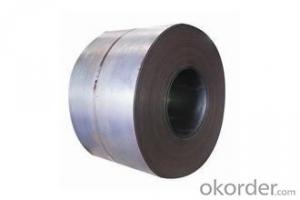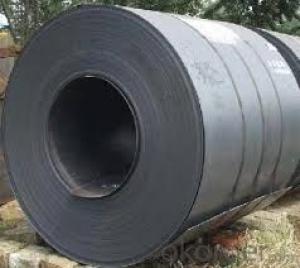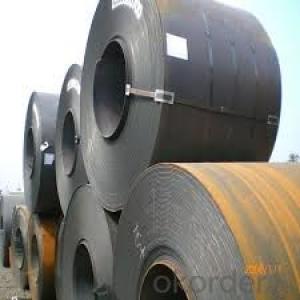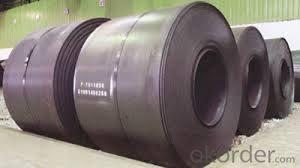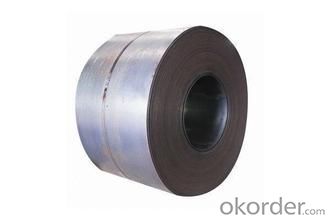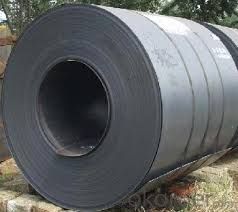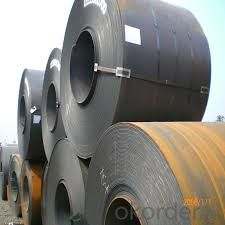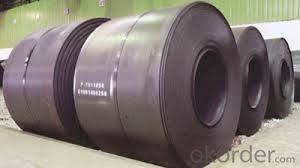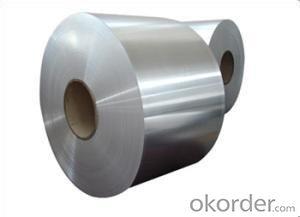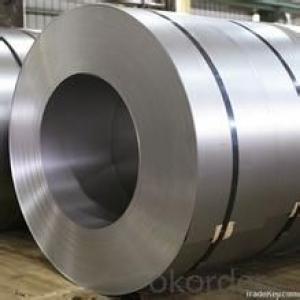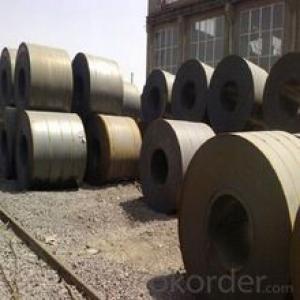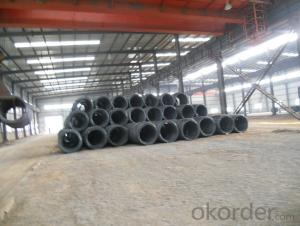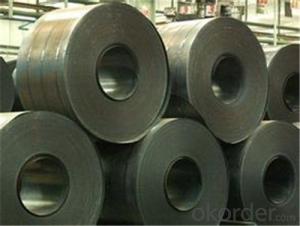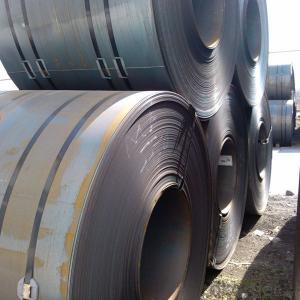hot rolled steel Sheet -SAE1006 in Good Quality
- Loading Port:
- China main port
- Payment Terms:
- TT OR LC
- Min Order Qty:
- 30 m.t.
- Supply Capability:
- 500000 m.t./month
OKorder Service Pledge
OKorder Financial Service
You Might Also Like
Description:
Hot-Rolled Steel Sheets and Coils are applied to a wide range of uses such as automobile, electrical appliance, machinery manufacturing, container manufacturing, shipbuilding, bridge, pipeline, and receive high acclaim from our customers for its excellent quality.
Specification:
Product: | Hot Rolled Steel Coils/Sheets |
Material: | Q195,Q235,A36,SS400,S235JR,Q345,ST37-2, CCSB etc |
Standard : | JIS G3002 GB/T251B |
Technique: | hot rolled |
Thickness | 1.2mm to 200mm |
Tolerance of thickness: | :+/-0.03mm |
Width: | 750mm-2000mm |
Tolerance of width: | :+/-5.00mm (aiming to +/-2.00mm) |
Normal width: | 914mm, 1000mm, 1200mm, 1219mm, 1250mm,1500mm |
Length: | According to requirement |
Coil ID: | 508mm-610mm |
Coil Weight: | 10-25 Metric Tons |
Surface: | Black, Chromate, fingerprint resistant treatment, slight oiled or non-oiled, dry |
Port of Loading: | Tianjin/Shanghai port |
Packaging Details: | Standard export packing or according to the clients required |
Delivery Time | Within 30 days after received 30% deposit or workable L/C |
Payment Terms: | L/C,T/T |
Iamge:
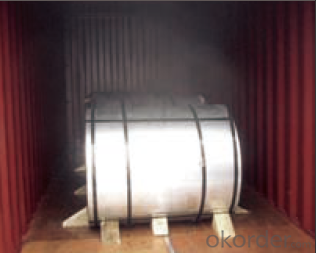
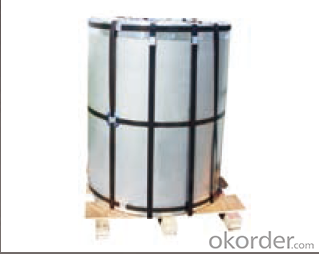
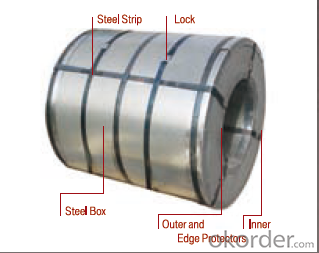
Our products enjoy an excellent reputation and have been exported to Europe, South-America, the Middle-East, Southeast-Asia, Africa and Russia etc.. We sincerely hope to establish good and long-term business relationship with your esteemed company.
- Q: If steel content is too cheap, what content should I be looking for? I don't think I could find something like a VG-10 here...
- I am a former chef and have used Chinese chefs knives, different types from cleavers, even french knives, they are mostly carbon steel, and are made with a cold forged process, they are as good as the European knives and are marketability cheaper, I have one a french knife a 8 one with a green non porous handle. I like it, it is light weight and very well made, and keeps an edge quite well, just look for the better type available.
- Q: On a free standing carport with an 8 inch, 22 foot long aluminum i-beam, would a steel 8-inch i-beam be just as strong? I am looking into it since they are cheaper.
- steel is definitely cheaper than aluminum. for the same size, steel is stronger. and much heavier. it may/will require stronger support posts. you'll want to be careful not to set up a galvanic reaction where you have steel and aluminum meet. stainless steel is much more expensive. you just want to make sure your steel beams have a good rustproof coating. either zinc plate or paint.
- Q: I am currently writing a manuscript, and would like to know whether guns made out of steel, burn or melt when exposed to flames. Thanks.
- Any steel will burn in the Presence of pure oxygen and high heat, that's how a cutting torch works.
- Q: How are steel coils cleaned?
- Steel coils are typically cleaned using a combination of processes such as chemical cleaning, mechanical cleaning, and/or high-pressure water blasting. The specific method used depends on the type and extent of dirt or contaminants present on the coils. Chemical cleaning involves applying specialized cleaning agents to dissolve and remove dirt, oil, or other substances. Mechanical cleaning may involve scrubbing or brushing the coils to physically remove debris. High-pressure water blasting is often employed to remove tough residues or surface impurities. The cleaning process aims to ensure that the steel coils are free from any contaminants before further processing or usage.
- Q: does regular steel rust? or is it all the same.
- Rusting is what steel, or any iron alloy, does best. Stainless steels rely on a small amount of either nickel or chromium, or occasionally some other element, to protect it. What these do is they actually oxidize faster than the iron does but this oxidation forms a microscopically thin, effectively invisible, but very tough coating of oxide that then protects the rest of the metal.
- Q: I like steel strings but don't want to get a new guitar. Is that my only option?
- Don't EVER put steel strings on a nylon stringed guitar. Steel strings have many times more tension than nylon strings. The bodies on nylon stringed guitars are braced lighter than their steel stringed cousins. If you put steel strings on a guitar designed for nylon, they will belly the top up as well as warp the neck. Since they're attached differently, you'd (luckily) have a hard time even getting steel strings to fit. Enjoy your nylon string guitar for what it is, and if you want to play steel strings, buy a guitar designed for them.
- Q: What are the different grades of steel used in coil production?
- There are various grades of steel used in coil production, including low carbon steel, high carbon steel, stainless steel, and advanced high-strength steel. These grades are chosen based on the specific requirements of the application, such as strength, corrosion resistance, and formability.
- Q: How are steel coils used in the manufacturing of defense equipment?
- Steel coils are used in the manufacturing of defense equipment for various applications such as armor plates, vehicle components, and weapon systems. The coils are typically processed and shaped into specific forms to provide strength, durability, and protection required for military purposes.
- Q: What are the different testing methods used for steel coils?
- There are several testing methods used for steel coils, including visual inspection, dimensional measurements, hardness testing, tensile testing, bend testing, and surface quality analysis. These methods help ensure the quality and compliance of steel coils with the specified standards and requirements.
- Q: Ive been playing with my ping i3 graphite irons for 6 years now and some days i can hit it and some days i cant. Then i tried out my friends irons the other day and he had steel and i was hitting the ball anywhere i wanted it to go..Is that a fluke or is steel irons just better than shaft? I was thinking about trading my graphites for steel, is that a good idea??
- Ping Graphite Iron Shafts
Send your message to us
hot rolled steel Sheet -SAE1006 in Good Quality
- Loading Port:
- China main port
- Payment Terms:
- TT OR LC
- Min Order Qty:
- 30 m.t.
- Supply Capability:
- 500000 m.t./month
OKorder Service Pledge
OKorder Financial Service
Similar products
Hot products
Hot Searches
Related keywords
